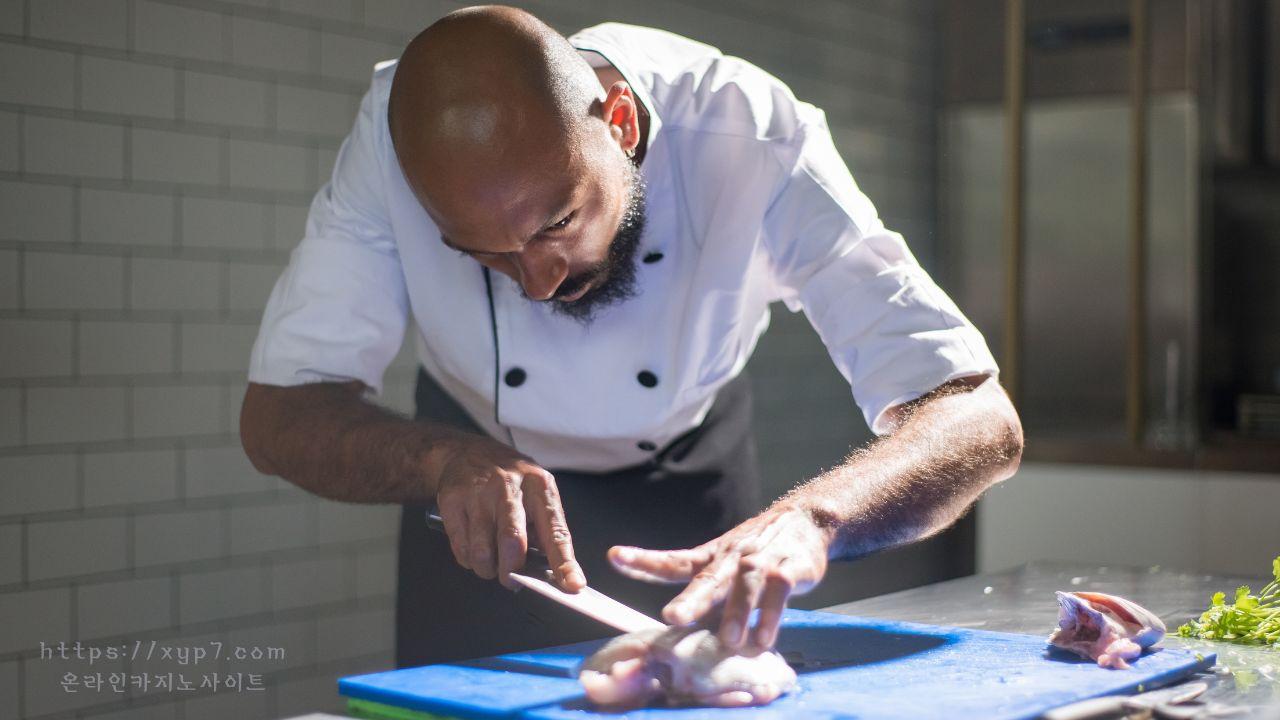Whether you’re a teenager considering your course of action… a seasoned adult thinking about switching careers or a seasoned chef seeking to improve your abilities or launch your own business. Attending culinary school is a significant decision that requires careful thought.
What advantages exist? What drawbacks exist? Is a degree in culinary arts the best option for you? In addition to teaching practical skills and techniques, culinary schools can introduce students to mentors and a vast network of culinary professionals. Additionally, if you enjoy trying new recipes, it may be a lot of fun!
However, not everyone will like it. You have to put in months or years of grueling effort, as well as your time, energy, and money, in order to take advantage of the guidance that culinary school offers. If you’re on the fence about continuing your education or choosing a different professional path, this list of benefits and drawbacks of culinary schools may help you make up your mind.
There are several benefits to earning a culinary degree or diploma, including mentorship and job chances. Here are some considerations to make when you weigh your alternatives. You can work in a professional kitchen or pursue a career in food without attending culinary school. But it undoubtedly can be useful.
After all, hiring managers typically want candidates who will require the least amount of on-the-job training in terms of time, effort, and money. You can be a significant appeal for hiring chefs by bringing an established skill set from culinary school and showing that you have the drive to work hard and acquire a degree.
Attending culinary school can demonstrate your commitment to food as a career, not simply a side gig. Chefs may favor a candidate who is committed to a career in food over one who only sees the role as a temporary employment in an industry where turnover might be significant.
Going to culinary school is a “gold star” on someone’s résumé since it demonstrates extra effort and perseverance. Even if you don’t want to work in a professional kitchen, cooking education may help further your career. Wouldn’t you prefer a food reviewer who has a background in cooking to complement their writing skills?
Access to these seasoned culinary professionals may also present chances for continuous networking and mentoring. Some alumni even form lifelong friendships with their chef instructors and keep in touch with them directly for professional advice. These dedicated instructors are eager to impart their experience, having paved the way for upcoming generations of chefs, on everything from how to advance in a busy kitchen to starting your own business.
Access to these seasoned culinary professionals may also present chances for continuous networking and mentoring. Some alumni even form lifelong friendships with their chef instructors and keep in touch with them directly for professional advice. These dedicated instructors are eager to impart their experience, having paved the way for upcoming generations of chefs, on everything from how to advance in a busy kitchen to starting your own business.
Access Networking Possibilities While a Student or Graduate. Your networking options in culinary school aren’t just limited to your chef instructors. Your peers make up a vast network as well.
While studying, students may run with scores of others who share their interests. These classmates could be in different stages of their own culinary professions, from novices to seasoned cooks and chefs looking to advance their abilities. These students can provide future employment prospects, moral support, and opportunities for higher education.
Your dream culinary career would involve: luxury dining? your personal eatery? Pastry? To learn more, download our self-evaluation guide! We’ve developed a convenient checklist of all the important topics, including job alternatives, polls of people’s interests in the culinary arts, educational options, and more. Graduates of Escoffier also have access to the Escoffier Alumni Association, which allows them to connect with former students who may have made more progress in their jobs.
Additionally, during their studies, every Escoffier student completes at least one practical industrial externship. This practical experience benefits students by giving them a position to list on their resumes and by offering them yet another chance to network. Coworkers and managers at your externship might be aware of upcoming job openings and possibilities! When the time comes to hire, a strong network can also assist aspiring restaurant or food truck operators in finding appropriate individuals.
Learn about cutting-edge methods and international cuisines. It is your responsibility as a professional kitchen employee to carry out the preparation or cooking required to provide that predefined menu to clients. While you might pick up that 10 or 20 dishes quickly, you might not have as much opportunity to pick up more diversified skills.
A solid curriculum for culinary school should expand on itself and scaffold your knowledge day by day. In 30 to 60 weeks, students can learn everything from fundamental knife skills and sanitation procedures to more sophisticated foreign cuisines and advanced cooking techniques by receiving a culinary degree, which isn’t linked to any particular menu. In a pan, an Escoffier pupil is turning ingredients while the chef instructor observes. Create lifelong virtues in the kitchen. In a professional kitchen, speed is essential. In order to work more rapidly, some cooks could learn to use shortcuts.
These short cuts can entail speeding through inventory, estimating weights rather than using a scale, or raising the oven’s temperature. And the end effect may be wasted goods, poor-quality food, or a messy work area. Students in culinary schools are required to establish discipline and excellent habits early on. They must be on time, dressed neatly, and prepared to work. Starting with good habits is essential since a great cook must be well-organized and clean. Even for students who have worked in professional kitchens for a number of years, cooking school can help them renew their routines, go back to the basics, and generally become more productive and efficient.
Cons of attending culinary school. There aren’t many drawbacks to going to culinary school, but there could be some. It also might not be the perfect time for you, depending on where you are in your career. You should think about the following challenges before applying. A Time Commitment is Needed for Culinary School. It takes time to learn. Getting educated could hinder your ability to make significant changes, such as beginning a new business, job, or vacation.
Nevertheless, Escoffier students can complete their culinary diploma in 30 weeks and their culinary degree in as little as 60, unlike students in a 4-year degree program. Even without attending culinary school, those 30 or 60 weeks will pass quickly.
Culinary school is not free, unless a student is fortunate enough to receive numerous scholarships that cover all of the expenses in full. Attending still requires making a financial commitment. Fortunately, Escoffier students who apply and are approved for financial aid can use it to pay for their on-campus or online cooking school studies. Students who attend culinary schools could also get a financial return on their investment. Graduates from culinary schools may be eligible for higher salary from some employers in order to take advantage of their formal education in the kitchen.
Juggling obligations to your family, job, and school may be difficult. Students in culinary schools frequently need to work part-time jobs to cover their living expenses. And some are older students with families who are still in school. Escoffier’s online culinary school programs can help meet this unique set of circumstances. Students can complete these programs on their schedule, as long as they meet the required course deadlines. Watch instructional videos and practice those skills at night after the kids are asleep, or even early in the morning before work.
Katie Sualog, an Escoffier student, successfully juggles her family life, employment, and studies. Before transferring to the Escoffier Austin campus, she actually began her degree program online. She is a mother of two and, in addition to pursuing her degree, operates a home-based bakery.
A culinary student is photographing some bread on their phone. Additionally, a Success Coach is assigned to each Escoffier student to assist them whenever they encounter difficulties or struggle with any aspect of their programs. These problem-solvers and motivators are at your side to support you all the way to graduation.
So, Who Should Attend Culinary School? What does it all signify when put together? Anyone who desires a greater understanding of cooking and cuisine may want to consider attending culinary school. It’s a great choice for aspiring chefs who want to pursue a career in the culinary arts, which may involve working in a commercial kitchen, owning a restaurant or food truck, or pursuing alternative careers such as those in food photography, food writing, chef consulting, recipe development, and more.
A student at Escoffier is adding ingredients while stirring a bowl. It’s also for those who understand that investing in their education is an investment in their futures and themselves, with the possibility of receiving significant financial and personal returns.
If that describes you, attending culinary school might be the best choice.






Absolutely a wonderful stories you made here. Cheers for this blog. 카지노사이트위키
I will be sure to read more of this useful magnificent information. 온라인카지노
Awesome and entertaining article. I support you. Keep on writing 카지노사이트탑
Very useful information you shared in this article, nicely written! 카지노사이트킹